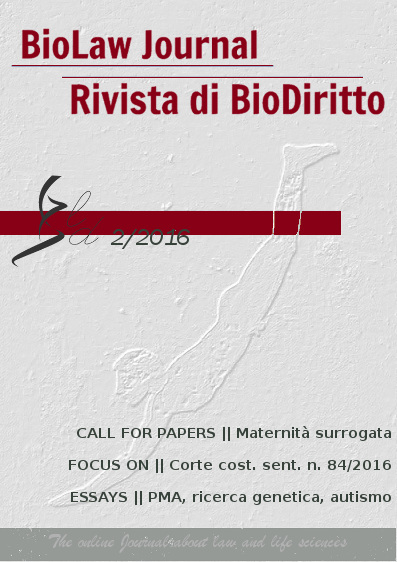In potenza o in atto? La Corte costituzionale e lo statuto normativo dell’embrione
DOI:
https://doi.org/10.15168/2284-4503-161Parole chiave:
Embryo, Research, Human Dignity, Law and ScienceAbstract
Who decides on Embryo? The Italian ‘Rules Governing Assisted Fertilization’ (L. 40/2004) allows clinical and experimental research on a human embryo only under the condition that therapeutic and diagnostic procedures are conducted to protect the health and development of the embryo itself, and excludes experimentation on embryos (art. 13 L. 40/2004). Recently, this article has been offered to the Italian Constitutional Court’s consideration (C.C. 84/2016), under the lens of a balancing text between the freedom of research and the protection of human dignity. The legal and philosophical construction of what (or who) an embryo is, in its relation with human dignity, is very interesting to analyze. In this sense, the Italian Constitutional Court’s judgment is crucial, because of the particular interpretation of the Aristotelian argument, often spent in this topic, but even for the boundaries that it poses between law and science in defining the theoretical and legal status of the embryo.





